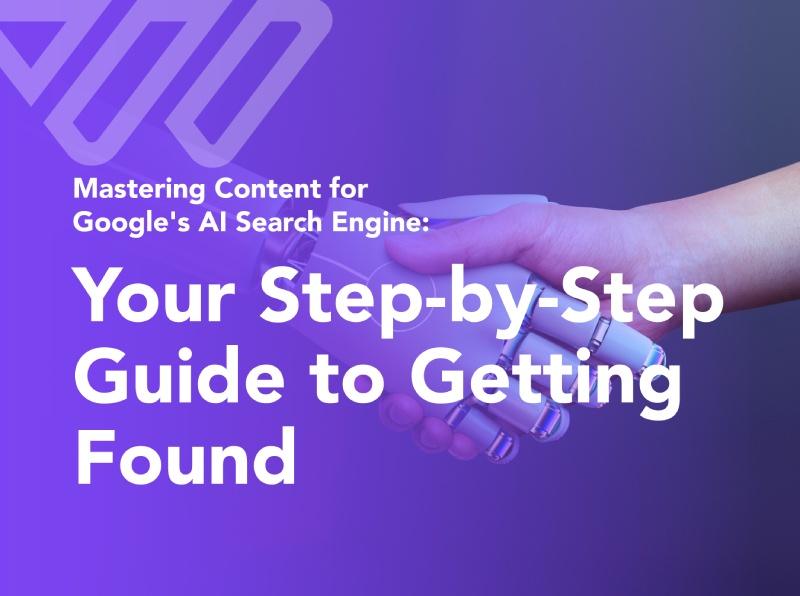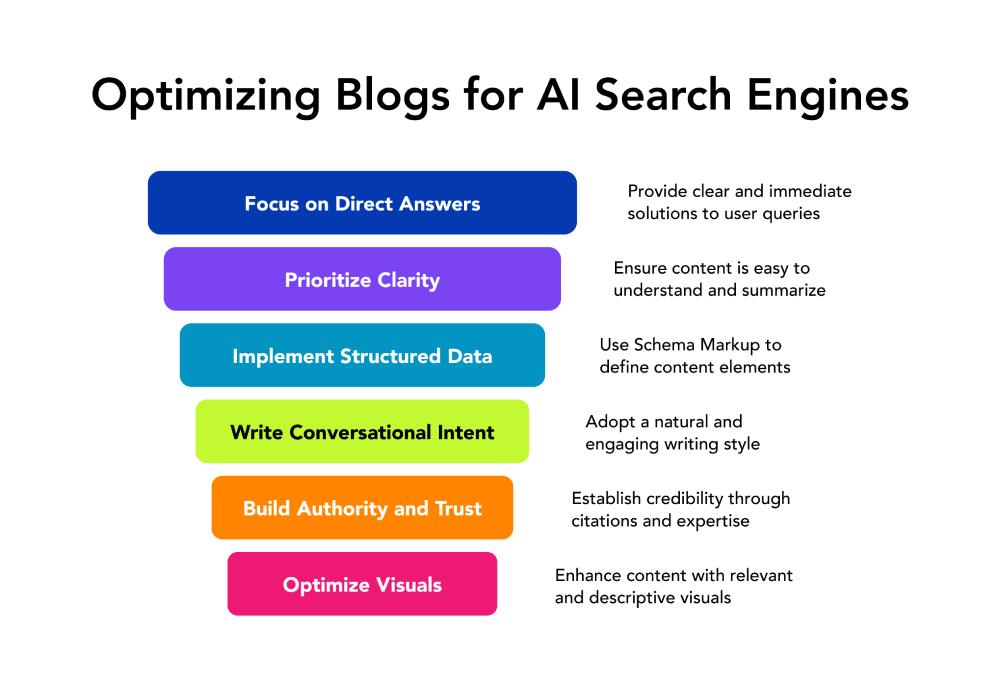Mastering Content for Google’s AI Search Engine: Your Step-by-Step Guide to Getting Found

The way customers find businesses and information online is changing faster than a Singapore express train. We’re moving beyond just typing keywords and clicking blue links. Today’s search engines are powered by Artificial Intelligence (AI), meaning they don’t just find information; they understand it, summarize it, and even generate direct answers. For small and medium-sized businesses across Singapore, this shift means that getting noticed online now requires a new approach: How to master content for Google’s AI Search Engine.
If your business relies on its blog to attract potential customers – whether you’re a local café in Tiong Bahru, a tech startup in One North, or a boutique in Orchard Road – simply writing good content isn’t enough anymore. You need to write content that AI SEO can comprehend and present to its users. This guide will give you practical, actionable steps to make your blog posts AI-friendly, ensuring your valuable information is discovered in this exciting new era of search.
Your Action Plan: How to Optimise Your Blog for Google’s AI Search Engine
So, what exactly does it mean to optimize your blog for AI? It’s about crafting content that speaks directly to these intelligent systems, making it easy for them to grasp your message and share it with those who need it most. Here’s how you can make your blog posts superstars of AI SEO:

Tip 1: Focus on Direct, Comprehensive Answers
AI search engines thrive on content that provides clear, unambiguous answers. They’re trying to solve a user’s problem or answer their question immediately. If your blog posts beat around the bush, AI might struggle to extract the core value.
Why it matters:
AI models prioritize content that directly addresses user queries. If your content is the best, most straightforward answer, it’s more likely to be featured in AI-generated summaries or direct answers.
Actionable steps for your blog:
- Identify specific questions: For every blog post, think about the precise questions your target audience might ask (e.g., “How to choose a reliable aircon service in Singapore?”, “What are the best places for brunch in Katong?”).
- Answer immediately: Start your blog post, or a specific section within it, with a direct answer to a key question. Don’t wait until the third paragraph.
- Use clear headings as questions: Instead of a heading like “Our Services,” use “What Services Does Our Digital Marketing Agency Offer?”
- Provide full solutions: If you’re offering a “how-to” guide, ensure every step is detailed and complete, leaving no room for confusion.
Tip 2: Prioritize Clarity and Summarize Well
AI models are designed to summarize vast amounts of information quickly. If your content is dense, disorganized, or full of jargon, it’s harder for the AI to process and extract key points. Think of making your content easy for a very intelligent, but very busy, robot to digest.
Why it matters:
Content that’s easy to summarize is content that’s more likely to be used in AI-generated answers, which are often concise summaries.
Actionable steps for your blog:
- Short sentences and paragraphs: Break down long sentences and paragraphs. Aim for one idea per sentence and a few sentences per paragraph.
- Use bullet points and numbered lists: These are gold for AI. They make information highly digestible and easy for AI to pull out as quick facts or steps.
- Include a summary: Consider a “Key Takeaways” or “In a Nutshell” section at the beginning or end of your blog post. This helps both human readers and AI quickly grasp the main points.
Tip 3: Embrace Structured Data
Structured data, also known as Schema Markup, is like providing a special instruction manual for your content. It’s code you add to your website that explicitly tells search engines (and AI) what specific pieces of information mean (e.g., this is a product, this is a review, this is a local business address).
Why it matters:
It removes guesswork for AI. If your product price or business hours are clearly marked with Schema, AI SEO can confidently use that information in its generated responses.
Actionable steps for your blog:
- Implement relevant Schema: Talk to your web developer about adding Schema Markup. For blog posts, “Article” Schema is common. For specific content, consider “FAQPage” (for Q&A sections), “LocalBusiness” (for contact details and hours if relevant to the post), or “Product” Schema if you’re discussing a specific product.
- Use plugins: Many popular website platforms (like WordPress) have plugins that make adding Schema much easier without needing to write code.
Tip 4: Write with Conversational Intent
AI models are trained on human conversations and are designed to interact in a natural, conversational way. If your content mirrors this, it becomes more appealing for AI SEO to draw from.
Why it matters:
Content that sounds natural and answers questions directly, as if in a conversation, is more aligned with how AI search engines process and present information.
Actionable steps for your blog:
- Use a friendly, approachable tone: Imagine you’re explaining something to a friend or a new customer.
- Incorporate questions naturally: You can start a section with a question (e.g., “Wondering about the best way to get PR for your SME in Singapore?”) and then immediately provide the answer.
- Anticipate follow-up questions: If you answer one question, think about what a user might ask next and address it in the subsequent paragraph or section.
Tip 5: Build Authority and Trust
AI values trustworthy and authoritative sources. It’s constantly learning to identify reliable information to prevent “hallucinations” (making up facts) or spreading misinformation.
Why it matters:
If AI deems your source trustworthy, it’s more likely to feature your content prominently or use it as a basis for its generated answers. This also builds trust with human users.
Actionable steps for your blog:
- Cite your sources: When referring to data, studies, or expert opinions, link to the original, reputable source.
- Show your expertise: Include author bios with relevant credentials or experience. If your blog is for a law firm, mention the lawyers’ qualifications.
- Encourage reviews and testimonials: While not directly on your blog, strong positive reviews on Google My Business or other platforms signal trustworthiness to AI.
- Keep content updated: Outdated information loses authority. Regularly review and update your older blog posts.
Tip 6: Optimize for Visuals
AI doesn’t just read text; it can also “see” and understand images and even videos. High-quality, relevant visuals with proper descriptions enhance the AI’s understanding of your content.
Why it matters:
Rich media makes your content more engaging for humans and provides additional data points for AI to interpret.
Actionable steps for your blog:
- Use clear, relevant images: Ensure your images directly relate to your content.
- Add descriptive Alt Text: This is crucial. For every image, add descriptive alternative text that tells the AI (and visually impaired users) exactly what the image is about (e.g., <img src=”local-cafe.jpg” alt=”Cozy cafe interior with customers enjoying coffee in Tiong Bahru, Singapore”>).
- Transcribe videos: If you embed videos, provide a transcript. AI can process video content, but a transcript makes it even easier to understand the key spoken points.
Conclusion
The digital landscape is always evolving, and AI-powered blog/content optimization Singapore is the next crucial step for businesses looking to thrive. It’s not just about getting clicks anymore; it’s about becoming a trusted source of direct answers and valuable information for Google’s AI search engine, which in turn boosts your brand’s credibility and visibility with potential customers.
By implementing these actionable tips explained in this article, you’ll position your business, at the forefront of this exciting AI revolution. Don’t let your valuable expertise get lost in the noise; make it shine for the smartest search engines yet.
Whoosh Media is Singapore’s leading digital agency, helping hundreads of brands with AI SEO (Generative Engine Optimisation). Let’s meet to discuss how your business can appear in ChatGPT, Gemini, Perplexity, Google SGE, and more.


